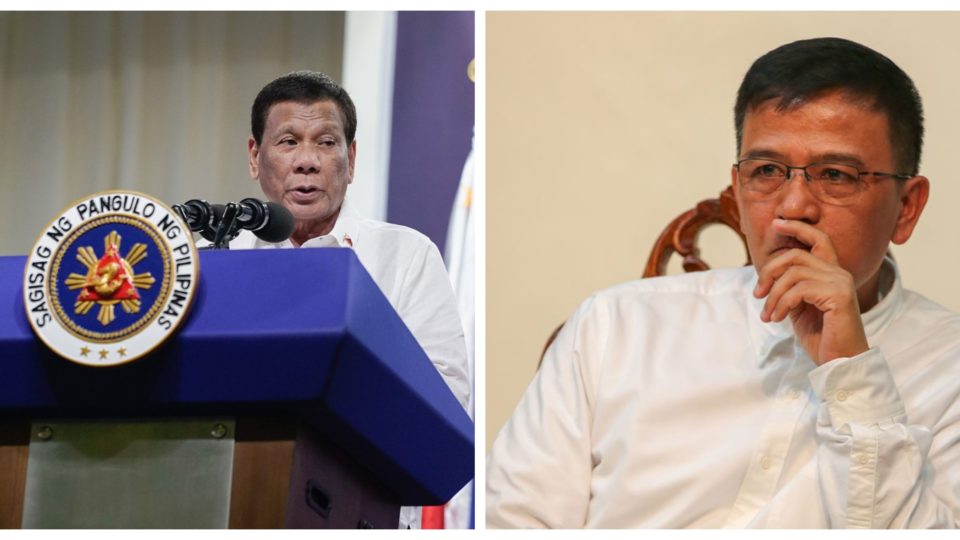President Rodrigo Duterte will make no move to fire his embattled Bureau of Corrections (BuCor) chief Nicanor Faeldon, at least not until he’s had a chance to digest the results of ongoing Senate hearings, presidential spokesman Salvador Panelo said today.
“[T]he President will maintain the status quo until the congressional hearings are concluded,” Panelo said in a statement.
“He will be monitoring the conduct of the legislative investigation and give appropriate consideration to the findings of Congress.”
Faeldon was summoned by the Senate this week amid increasingly intense public scrutiny over good-behavior releases since the near-release of former Calauan Mayor Antonio Sanchez, convicted in 1995 of torturing and murdering college students Eileen Sarmenta and Allan Gomez.
Read: Men linked to Chiong sisters’ rape-murder walked free, corrections chief confirms
It was in yesterday’s Senate hearing that Faeldon admitted that three of seven men convicted in the brutal 1997 rape-murder of sisters Marijoy and Jacqueline Chiong are among the nearly 2,000 freed since 2014 under Republic Act No. 10592 (aka Good Conduct Time Allowance or GCTA), a controversial 2013 law that deducts as many as 30 days from a prisoner’s term for every month served if they display good behavior during detention.
Faeldon’s revelation has led to calls for his resignation, but the BuCor chief said yesterday he has no plans to do so, as he believes he’s doing a good job despite the ongoing controversy.
Read: PH police ready to arrest almost 2,000 convicts released under controversial good conduct law
Separately, Panelo also said that Duterte has nothing to do with the enactment of the GCTA law, pinning the blame on former President Benigno Aquino III ,who signed the law in 2013. Panelo added that the practice of releasing prisoners convicted of heinous crimes was based on the rules and regulations drafted by then-Justice Secretary and now-jailed Senator Leila de Lima and then-Interior Secretary Manuel Roxas, both of whom are members of the opposition.
“Clearly, the law and its IRR were prepared not by the officials of this administration but by the previous one. The practice of granting GCTA to those convicted of heinous crimes has also been existent years before PRRD assumed his presidential seat,” Panelo said.
Panelo also blamed the Supreme Court for making the GCTA law retroactive, a decision the high court made in June. The original version of the GCTA law was intended to benefit only those convicted from 2013 onwards.




